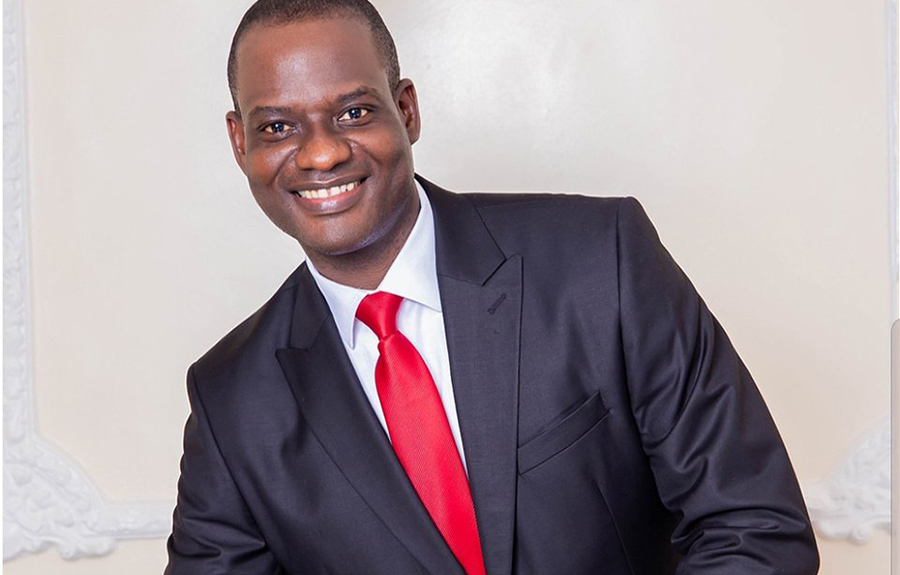Nigeria’s economy faces a double threat from the coronavirus pandemic and lower oil prices, which have badly affected its revenue and foreign exchange earnings.
In a chat with CNBC Africa, the Partner and West Africa Tax Lead at PwC Nigeria, Taiwo Oyedele, looked at how Nigeria could cope with the strain on revenue targets and options available to the Government.
Oyedele said, ”This is a very difficult time for the global economy, even more still for a developing country like Nigeria where there is a lot of reliance and dependence on crude oil revenue to fund the government as well as foreign exchange earnings”.
In the interview, Oyedele, pointed out that in a web dialogue series, the Minister for Finance, Budget and National Planning, Zainab Ahmed, and other top Government officials handling the economy disclosed that the Government was planning a further downward revision of the 2020 budget oil benchmark to $20 per barrel, which would be too low and probably below production cost.
(READ MORE: Local investors push Nigerian Stocks to post best monthly gains in over 2 years)
Also, as a result of the impact of the coronavirus pandemic, the Federal Government revised downward the targets of revenue-generating agencies like Nigerian Customs Service, FIRS and others.
Even the recent receipt of the $311 million Abacha loot was deemed grossly inadequate to plug the huge revenue hole, created by the economic crisis.
On the palliative from the tax authority, he feels that the government should come up with measures that will have an immediate impact on businesses and add more cash to their businesses and not just extension of the filing deadline.
He said, ”What we are seeing mostly from government, has been an extension of filing deadline which means that you don’t have to file your returns now, you can file it later, in a few instances, you have an extension of payment of taxes. Though I see that the extension of taxes will help with the cash flow but extension filing of returns does not solve the problem”.
The PwC tax partner admitted that Nigeria did not have the financial resources of some bigger economies to provide palliatives like cash transfers, so the citizens were in for rough times.
He suggested that although the Federal Government, through the CBN, was providing intervention funds for some SMEs and households, more of the intervention should be targeted at the most vulnerable sectors like hotels, hospitality, aviation, transportation and others. Even at that, special attention should be given to the most vulnerable people in this sector.
READ MORE: GTBank, Access, 2 others pay PWC, KPMG N3.17 billion as audit fees in 2019
Most importantly, Oyedele, said the Government needs to look at how they can raise revenue in these difficult times, without creating economic problems and dislocations.
He said, ”Government needs to look at areas where we seem to be wasting revenue, the subsidy is the biggest one. So we have a subsidy on petroleum products, particularly petrol. The government says we have removed subsidy but they are not paying attention to the fact that we have 3 components of subsidy. There is under-recovery, that is what has been removed; there is foreign exchange subsidy, that has not been removed; there is tax subsidy, that has not been removed”.
These subsidies, which involve spending a lot of resources that could have been added to the country’s revenue, include:
(READ MORE: Manufacturers, construction companies to receive waivers from Lagos State during lockdown ease-up phase)
As for the foreign exchange subsidy, he pointed out that this can be removed by harmonizing the rate at which everyone gets the foreign currency. This will mean not given concessionary interest rates to petroleum products importers, but rather the market-driven rates.
Oyedele said that if you include that the taxes that should be on petroleum products like VAT and Excise duty, then the government should be looking at a revenue of about N2 trillion.
He also said, ”You have subsidy on electricity tariff, that’s about N1 trillion. The government needs to find a way to remove that. You also need to find out how do you harmonize the tax waivers and incentives that are not really adding value to the economy”.
READ ALSO: ABCON president explains how Nigeria is benefiting from the U.S-China trade war
The PwC boss said that by the time you put together the revenue that can be raised by doing away with these subsidies, one can easily raise between N3 trillion and N4 trillion in revenue, even with the biting economy. A tidy sum to help with the challenges faced by the country.
